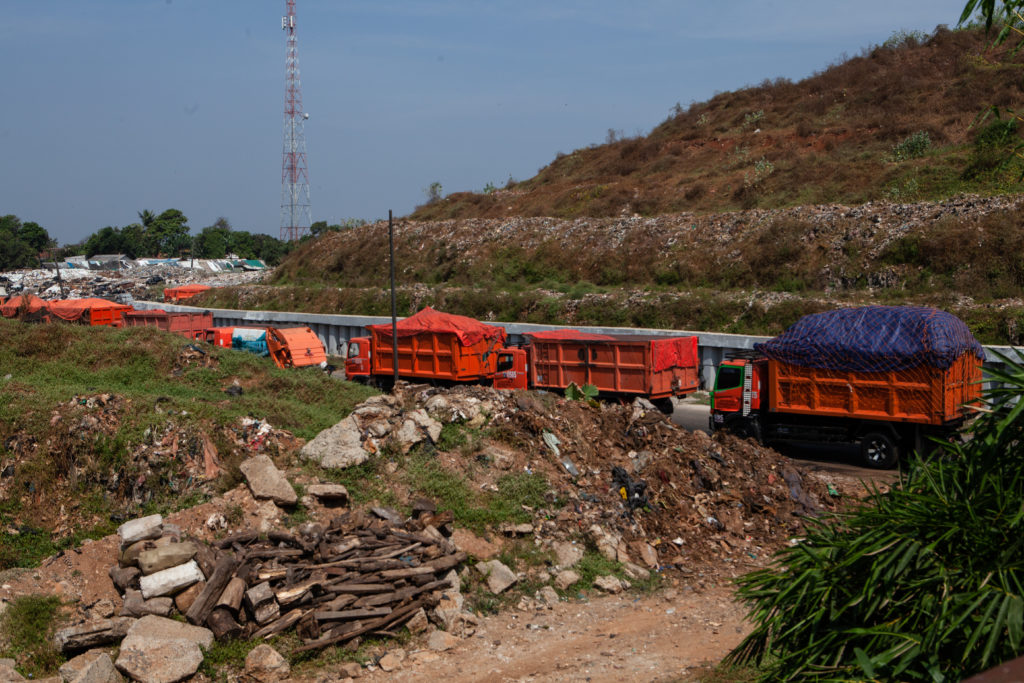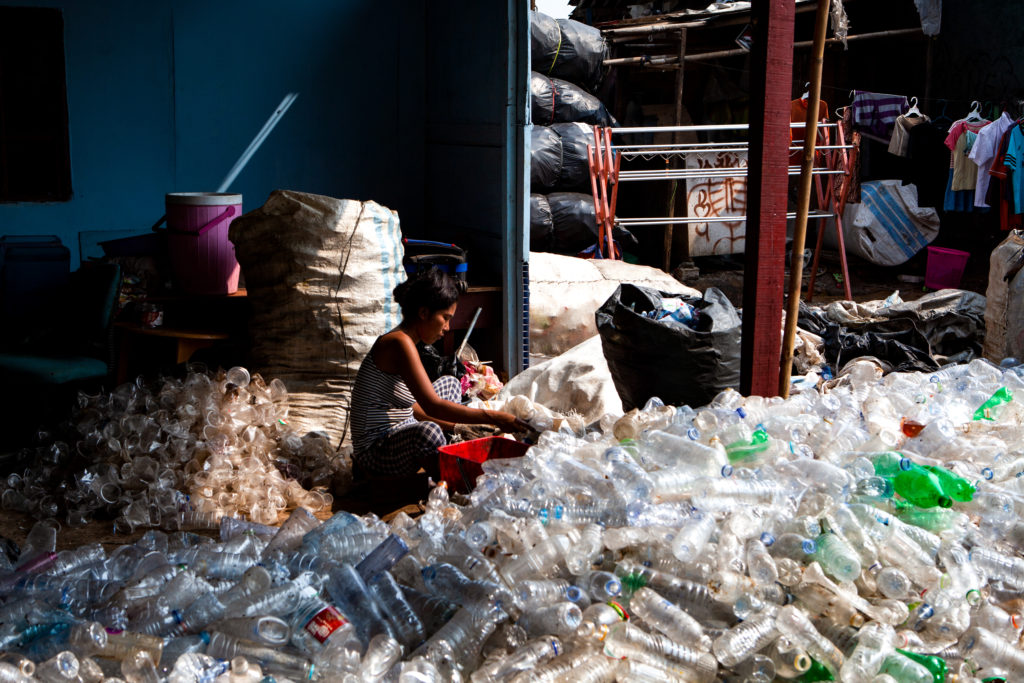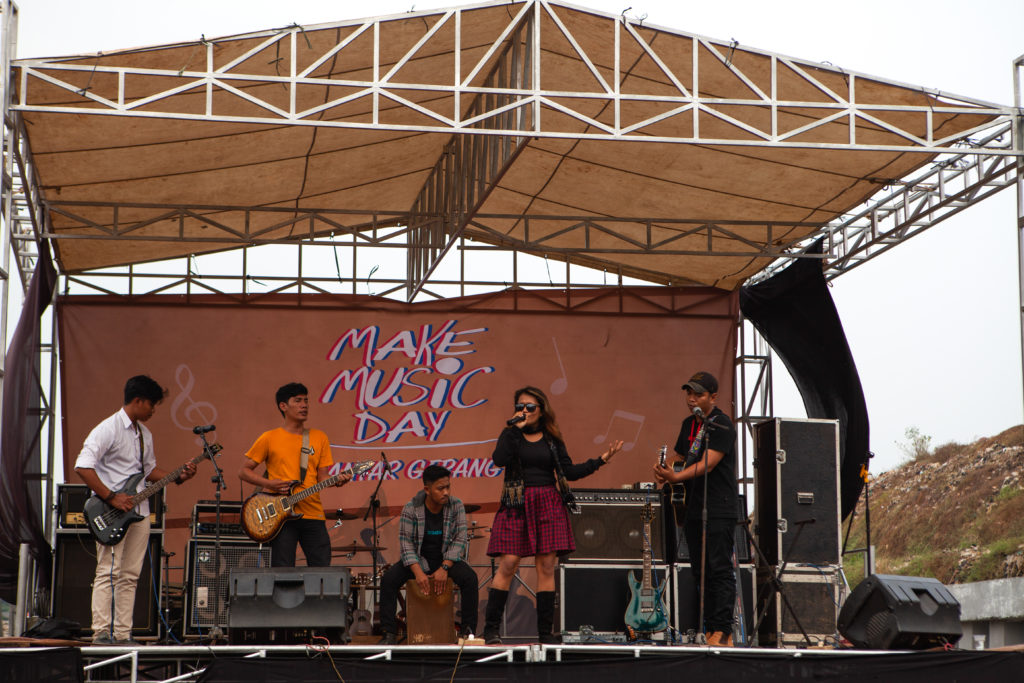Every day, roughly 8,000 tonnes of rubbish are collected from the capital city of Jakarta before ending up at Bantar Gebang, the largest landfill in Southeast Asia. Just two decades ago, the area was covered with paddy fields before it was bought by the state and later converted into a landfill. Being in Bantar Gebang for the first time, I wasn’t struck by the monumental size of the landfill as much as the sight of dozens of people working tirelessly from the base to the very top of the 40-metre heap. Today approximately 3,000 families live in Bantar Gebang. Residents have grown dependent on the landfill for a living, as their main source of income involves the collection and resale of recyclables, such as plastic bottles, aluminum cans, and cardboard. The lack of access to clean water, as well as the poor quality of the available sanitation facilities, are just some of the many challenges faced by the families who live around the landfill. It was only when I was shown a plate of chicken drumsticks – which was fried after being picked – that I learned that residents also rely the landfill for discarded food. With the landfill expected to reach its maximum capacity in a few years, families will have to look for other means of earning a living. Pak Amin, a resident who has been working at Bantar Gebang for the last 8 years, has expressed interest in moving to where the next landfill will be, “depending on how far it is and whether my children can come with me.”

Children who live at the landfill are often stigmatized as poor and uneducated. Such stigma affects these children’s psyche, decreasing their confidence and tainting their outlook on life. In order to combat this stigma, Resa Boenard co-founded BGBJ (www.bgbj.org) – a community-run nonprofit organization with the mission to empower the local children to believe that they can become anything they wish to be, no matter how big or small their aspirations are. Resa, who was also born and raised in Bantar Gebang, recalls that “there was no role model when I was a kid… people stop schooling at eleven [or] twelve… married at thirteen.” To fill this need for adequate educational resources in the community, workshops are conducted regularly. Some of the weekly classes offered include foreign languages, music, photography, yoga, and boxing. At BGBJ, children are also taught how to reduce their plastic consumption. “This is very important because we are living in the middle of the landfill with plastic reaching outside of our doors… [while] some of the children understand, some of them keep asking why us and why not people from Jakarta?” Resa strongly abides by the belief that even when the children move away from landfill one day, they will be mindful of their impact on someone else’s environment. Moreover, “if we don’t take any action, we would be the same as them [people in Jakarta].”

Last July, BGBJ organized an outdoor music concert at the landfill as a part of Make Music Day – an annual global event where communities gather to celebrate live music in public spaces such as neighborhood parks. For the first time, the road in front of BGBJ leading to the entrance of the landfill was closed off. Bright orange dump trucks that drove by continuously throughout the day and night were rerouted, drawing large crowds to the street where the dance floor was set. It was a day packed with back-to-back live performances from 16 bands who traveled from as far as the city of Bandung to perform. The children of BGBJ kickstarted the concert with an opening performance that they spent weeks, if not months, rehearsing for; together, they marched towards the stage against a backdrop of what seemed like an insurmountable mountain of waste. Resa’s aspirations are echoed in this frame – “In the future we will see the children of Bantar Gebang contributing to protect this environment [and] not just being someone who lives in the landfill.”

Over in the distance, I can still make out tiny figures with their backs crouched over at the very top of these landfills. Waste pickers, known locally as pemulung, are still hard at work. Many of them are parents who have expressed their desire to provide a better future for their children. With the landfill expected to be filled in due time, one can’t help but question how the closure of landfill will affect the livelihoods of communities who have made Bantar Gebang their home.